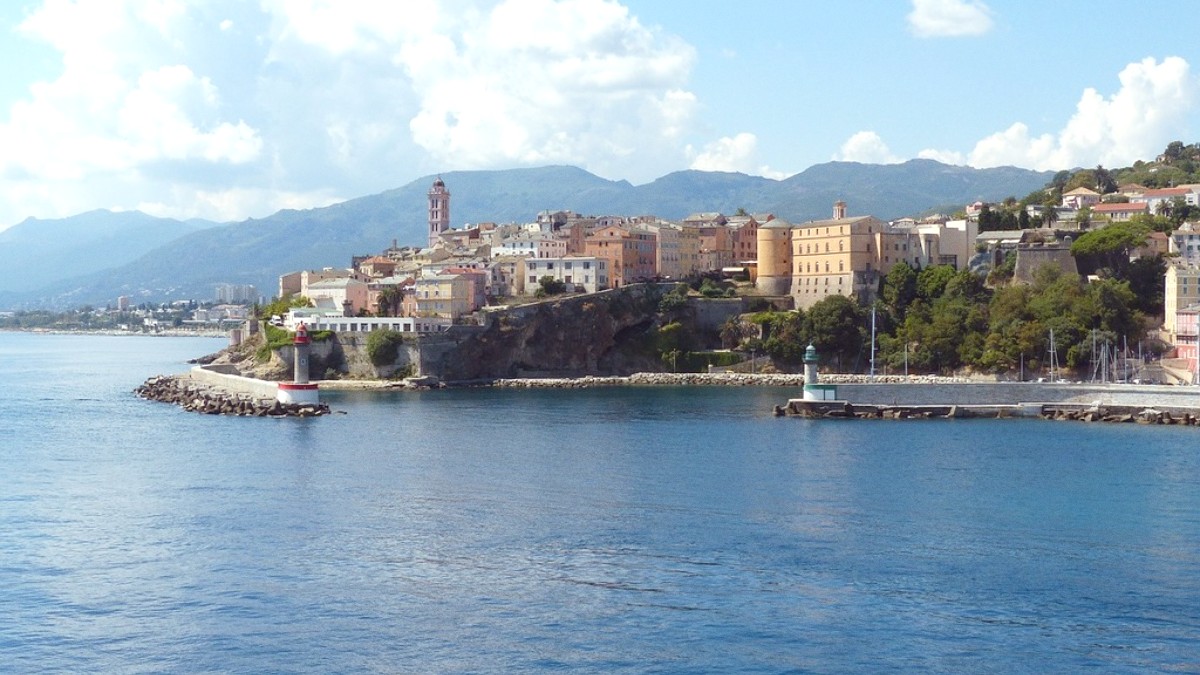
Corsica, France
Bastia – Poretta Airport (BIA) serves as the main airport for the city and northern Corsica. It is located approximately 20 kilometers (12 miles) south of Bastia city center. The airport marks an useful entry point for visitors.
Bastia – Poretta Airport has standard facilities: car rental desks, taxi stand, and an airport shuttle bus. Basic amenities include cafes, shops, and ATMs. Getting to the city center is straightforward.
Flight frequency and routes significantly increase in high season (summer).
High season sees higher prices; shoulder seasons offer more reasonable rates.
Mainly from major French cities, expanding from other European hubs in summer.
Arrive at Bastia – Poretta Airport at least 1.5 to 2 hours before departure.
For seasonal international flights, aim for 2 to 3 hours before departure.
Arrive at the Port of Bastia at least 1 to 1.5 hours before scheduled departure, especially with a vehicle.
Bastia serves as Corsica's main port, welcoming many passenger and vehicle ferries. This presents a scenic and often more relaxed travel experience, specifically if you plan to bring a vehicle. The Port of Bastia is centrally located, offering easy access to the Old Port and other city attractions. It functions as a major hub for ferry connections.
For travelers arriving from outside the Schengen Area, standard immigration checks apply at the Port of Bastia. If you travel from another Schengen country (e.g., from Nice, France), checks are generally less stringent, but you must still carry valid identity documents (passport or national ID card). Ensure all necessary travel documents are readily available.
Various routes connect Bastia to mainland France and Italy.
Whether by air or sea, planning your timing carefully is helpful.
Bastia's public transportation network consists of its bus system, operated by ViaBastia. This system presents a cost-effective way to explore the city and its immediate suburbs. Bus routes connect the Old Port, Place Saint-Nicolas, the Citadel, and the main train station. They also serve residential neighborhoods.
Taxis offer a convenient, on-demand transport option in Bastia, especially for specific destinations or when carrying luggage. Licensed taxis are white vehicles with a "TAXI" sign. Find them at stands (airport, ferry port, train station, Place Saint-Nicolas) or hail one if the roof light is green. You can also call a local taxi company. Uber is not widely available in Bastia; taxis remain the main on-demand service.
Exploring Bastia on foot presents the best way to experience its historic charm.
Specialized shops offer motorcycle and scooter rentals for winding roads.
During peak season, tour buses or hop-on-hop-off services may operate.
You will need a valid national driving license (held 1-2 years), and an International Driving Permit (IDP) for non-EU licenses. A credit card in the driver's name is needed for the security deposit. Minimum age is typically 21, with surcharges for under 25. Major companies like Hertz, Europcar, Avis, Sixt, and Budget have airport/port offices. Booking in advance, especially in peak season, is suggested for better rates.
Bicycle rentals exist from local shops. Bastia does not have a widespread city-wide bicycle sharing program. Dedicated cycling lanes are limited. Cycling on main roads can be challenging due to traffic and hills. Coastal roads south of the city offer flatter sections for leisurely rides. No specific "no-go" areas exist for pedestrians/cyclists, but some roads can be steep/heavily trafficked.
Affordable city travel. Limited routes/frequency evenings/weekends.
Convenient, door-to-door, available on-call. More expensive, less common than in major cities.
Freedom to explore Corsica. Expensive, challenging parking, winding roads.
For efficient city navigation, consider walking for short distances and using the ViaBastia bus for longer routes. A rental car unlocks island exploration beyond Bastia.